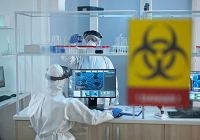The Importance of Drug Safety and Efficacy in Clinical Trials
Clinical trials are a core process of medicine development, as they are channels through which a variety of drugs and therapies are introduced into the market. Central to these trials is the evaluation of two key factors: drug safety and efficacy. These aspects are crucial if there are strong chances that the new drugs are more effective in managing their targeted disorders without evident risks in its consumption. Well, it’s high time to discuss the necessity of drug safety and its efficacy in clinical trials.
Ensuring Patient Safety
First of all, the main principal of clinical trials is the protection of human volunteers. It needs to be stated that, in the process of approving any drug for the public use, it is required to reveal certain side effects or risks, if any. One of the problems of even the most efficient treatments is side effects, and clinical trials are aimed at revealing them at the initial stage. This allows one to closely observe the participants with particular focuses on the side effects or complications they are likely to experience from the drug under test.
Establishing Efficacy
Aside from safety, clinical trials are concerned with effectiveness of a substance, that is the ability of a drug to produce the intended result. This means establishing the extent to which the drug works as expected by providing the significant therapeutic values. Several objectives and outcomes exist for efficacy assessment, including the signs and symptoms, disease progression, or patients’ conditions. In other words, without the proof as to the drug’s effectiveness it cannot be released into the public domain as it offers no therapeutic value to patients.
Ethical Considerations
Ethical issues remain a crucial aspect of a clinical trial, especially regarding the risk-benefit ratio for participants. Independent committees that oversee trials pay a lot of attention to trial processes to ensure that patients’ well-being is not compromised. These are the measures of informed consent, safety evaluation on the subjects, and medical treatment during the time of the experiment. Safety evaluations in drugs are crucial in upholding the principles of research and spare the lives of the trials’ subjects.
Regulatory Approval
Safety and efficacy data are mandatory for a drug to be licensed by a world’s regulatory authorities like the FDA in the United States or EMA in the European Union. Original data based on clinical trial is used in regulatory submissions to prove that the drug meets all the high standards to be approved. These agencies review voluminous documentation resulted by the clinical trials to determine the possibility of the drug being marketed for use by the population.
Public Health Impact
Drug safety and efficacy have wider impact than the specific patient or the community of patients. Approved drugs are used by tens of millions of people around the world and thus health products should not only be safe and effective for the population as a whole, but in various subgroups. Thorough preclinical trials enable an evaluation of any of the issues that may influence the effectiveness of a medicine in distinguished populations, thereby enabling doctors to recommend drugs that are most beneficial to their patients as long as there are minimal adverse consequences.
Continuous Monitoring
The FDA does not turn the management of drug safety over with the approval of a drug. After a drug has been approved and marketed, new monitoring and parmacovigilance activities are carried out. These systems replicate actual-life information on the safety of a drug as well as just how effective the medication is in everyday clinical usage. It also creates an opportunity to determine secondary and tertiary effects that may occur only with long intervals in-between or have a low prevalence rate within the population of patients.
Conclusion
In conclusion, specificity of drug safety and efficacy are the indispensable conceptual premises of clinical trials with the goal to safeguard patients’ well-being, evaluate the efficacy of treatments and the results of policy-making initiatives. This means that through the phase IV trial results and scrutiny tests, the researchers and health care practitioners can easily determine the hazards and advantages of the clinical drug development; therefore, the government approves specifically those that will considerably have a higher shot of benefiting than harming the society.
Frequently Asked Questions

Optimize Your trial insights with Clival Database.
Are you exhausted from the uncertainty of trial insights pricing? Clival Database ensures the clarity in the midst of the global scenario for clinical trials to you.Clival Database is one of the best databases that offers an outstanding number of clinical trial data in terms of 50,000+ molecules and from primary regulatory markets as well as new entrants like Indian and Chinese markets.
Elevate your trial success rate with the cutting-edge insights from Clival database.
Check it out today and make more informed sourcing decisions! Learn More!







